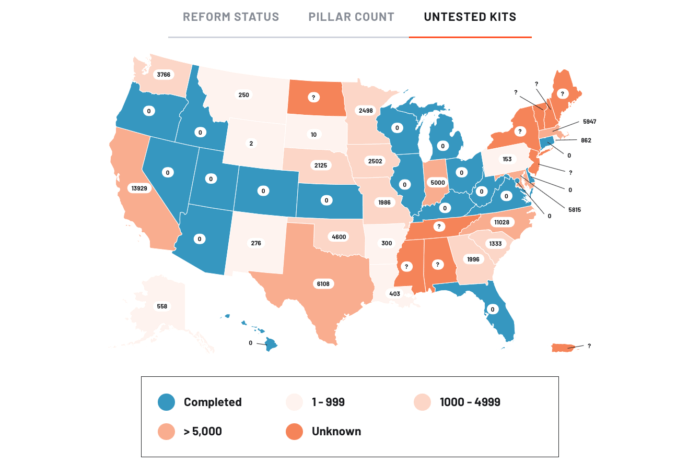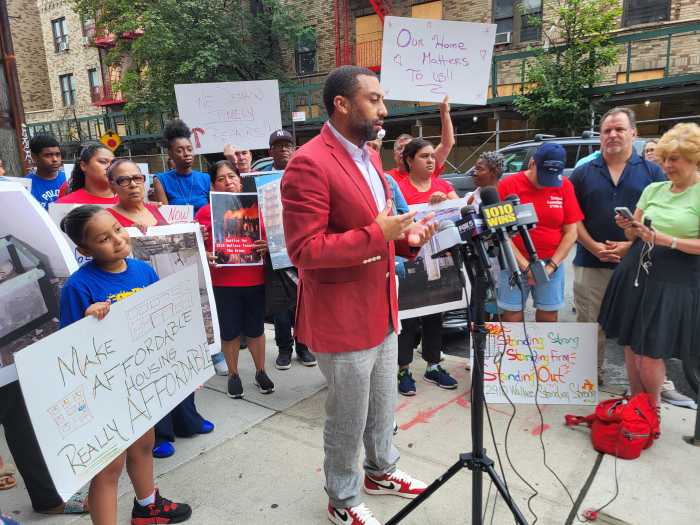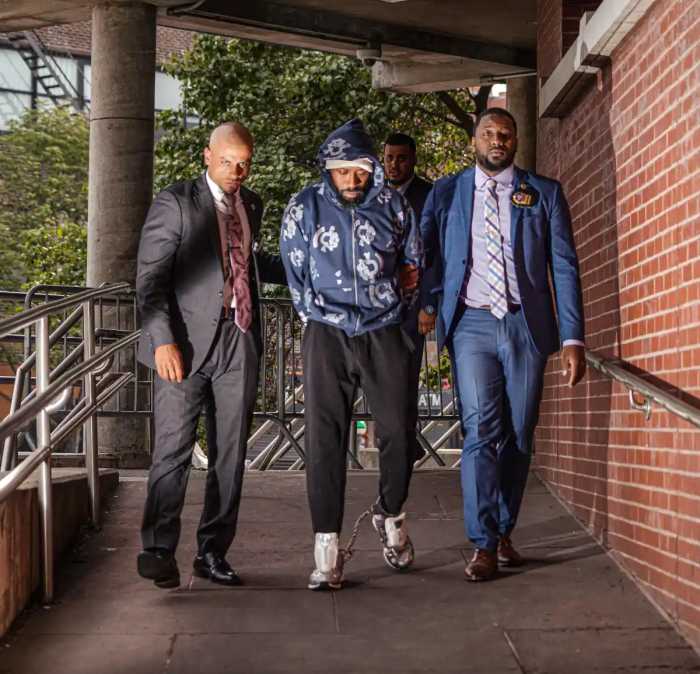Throughout the country thousands of rape kits sit untested, putting many survivors of sexual assault in an uphill battle for justice. In June, a bill that would establish a statewide electronic tracking system for rape kits passed the New York State Legislature but still awaits Gov. Kathy Hochul’s signature.
Currently, 33 states and Washington, D.C., have either implemented or are in the process of implementing sexual assault kit tracking systems.
The New York legislation, which was sponsored by Progressive state Sen. Alessandra Biaggi, would require the system to track the location and status of each evidence collection kit through the criminal justice process, including the initial collection of evidence for the kit performed at a health care facility, receipt and storage of the evidence collection kit at a law enforcement agency, and receipt and analysis of the evidence.
Health care facilities which perform forensic medical examinations, law enforcement agencies, accredited crime laboratories, prosecutors and other entities must provide a chain of custody for an evidence collection kit to update and track the status and location of the kits, according to the legislation. Survivors would then have the ability to anonymously track or receive updates regarding the status and location of their evidence collection kit.
In 2016, New York state passed a law that required all rape kits to be sent to a forensic lab within 10 days and processed within 90 days. However, the backlog of rape kits often involves the kit not being sent to the crime lab or even tested. North Carolina has between 14,000 and 15,000 untested rape kits –Texas has more than 5,000.
“Unfortunately, it is extremely common for survivors to leave the hospital after a sexual assault and receive no information about the status of their rape kits,” Biaggi said. “Survivors who do seek out updates report facing additional trauma, victim blaming, and contempt when they follow up with law enforcement. By establishing a rape kit tracking system, we will restore agency to survivors and allow them to access information about the status of their rape kit if and when they are ready.”
While the bill does not set a timeline for processing rape kits, there would be more pressure on the state labs to move efficiently, according to Biaggi. The bill also requires old, untested kits to be entered into the system.

Tracking systems are often a crucial tool to hold hospitals, law enforcement and state labs account-able for timely processing. The state’s 2018 enacted budget required the Department of Health, Office of Victim Services, Department of Criminal Justice Services, and Division of State Police to jointly study and make recommendations on creating a statewide tracking system. However, this has yet to result in the state creating a tracking system.
Biaggi’s legislation would require the state Division of Criminal Justice Services in consultation with the state Department of Health, state Office of Victim Services, Division of State Police and New York State Coalition Against Sexual Assault to develop a rape kit tracking system. All medical providers, law enforcement, forensic laboratories and any other individuals or entities that have custody of the kit will be required to participate no later than Jan. 1, 2024, if the legislation is signed into law by the governor.
With thousands of untested rape kits in a dozen states, Biaggi told the Bronx Times she hopes other states follow in New York’s footsteps in creating a tracking system.
While the senator only introduced the bill in January, this topic of untested rape kits has been a concern of hers and several nonprofit organizations for many years. In 2017, Biaggi worked in then Gov. Andrew Cuomo’s office, and it was there where she learned firsthand about the rape kit backlog and how there was no way to track them.
“We brought New York into the 21st century when it comes to being able to access evidence that empowers them (sexual assault victims),” Biaggi said. “This bill really has been a no-brainer. If you do a rape kit, a person should be able to know how to access it.”
One nonprofit that worked closely with the senator to craft the bill is Joyful Heart, which was started by actor Mariska Hargitay who plays Olivia Benson on “Law & Order: Special Victims’ Unit.”
Since 2010, Joyful Heart has made the elimination of the rape kit backlog a top priority through its End the Backlog initiative.
Ilse Knecht, director of policy and advocacy for Joyful Heart, praised Biaggi for the bill and said it is long overdue. Knecht said if people can track a pizza or Amazon delivery, they should be able to know the status of their rape kit.
Knecht told the Times that right now no one is sure if law enforcement or hospitals are making sure all rape kits are tested in a timely manner in New York. According to Knecht, when rape kits are lost survivors lose faith in the justice system and often do not testify in court.
“We don’t know what’s sitting on law enforcement shelves,” she said. “Most survivors leave the hospital and never hear again about where their rape kit is. This is basically a way for them to get that information. When you lose a kit the chance of justice is a lot smaller.”
Reach Jason Cohen at jasoncohen306@gmail.com or (646) 899-8058. For more coverage, follow us on Twitter, Facebook and Instagram @bronxtimes


















